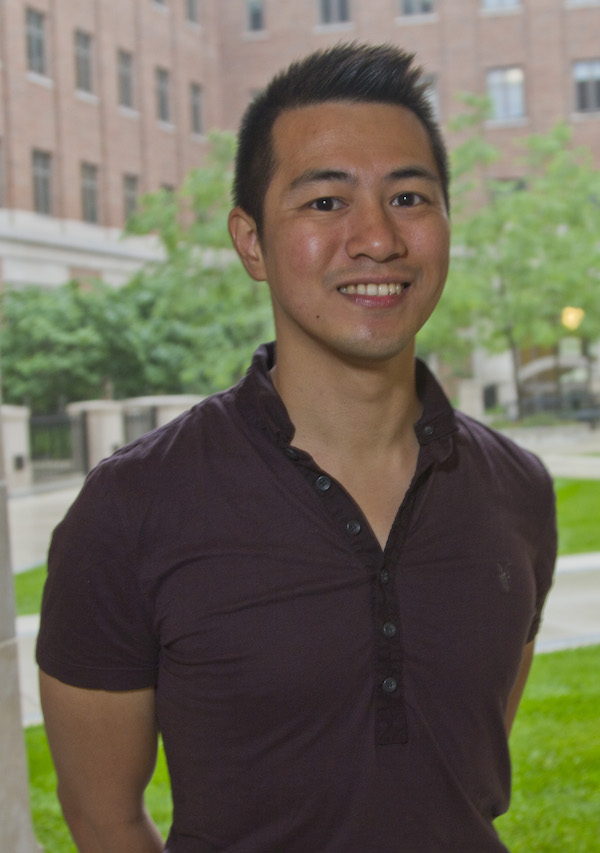 Ricardo L. Punzalan
Ricardo L. Punzalan
Assistant Professor, College of Information Studies
University of Maryland, College Park
“If elected to the Council, I will use my years of training and personal experience in facilitating discussion and inspiring meaningful contemplation to inspire others to activate, discuss, and refine SAA’s core values, to formulate meaningful actions, and to mobilize toward a more inclusive professional organization.”
PROFESSIONAL EXPERIENCE
- Assistant Professor, College of Information Studies, University of Maryland, College Park, 2013–present.
- Co-chair, Graduate Program in Museum Scholarship and Material Culture, University of Maryland, College Park, 2017–present.
- Assistant Professor, School of Library and Information Studies, University of the Philippines Diliman, 2001–2006.
- Archivist and Curator, Culion Leprosy Museum and Archives, 2005–2006.
- Museum Archivist, Jorge Vargas Museum, University of the Philippines Diliman, 2002–2005.
EDUCATION
- PhD in Information, University of Michigan.
- Master of Library and Information Science, University of the Philippines Diliman.
- Bachelor of Library Science, University of the Philippines Diliman.
PROFESSIONAL ACTIVITIES
- Society of American Archivists: Native American Archives Section, Chair (2017–present), Vice Chair/Chair-Elect (2016–2017), Steering Committee (2015–2016); Visual Materials Section, Education Committee Chair (2013–2016).
- Other: Archival Education and Research Institute, Organizer and Program Committee, Chair (2014–2015); International Council on Archives, Section on Archival Education and Training, Steering Committee (2004–present).
SELECTED PUBLICATIONS AND AWARDS
- “Beyond Clicks, Likes, and Downloads: Identifying Meaningful Impacts for Digitized Ethnographic Archives,” with Diana Marsh and Kayla Cools, Archivaria, 2017.
- “Dear Students: Becoming an Archivist in a Time of Uncertainty and Unrest,” Library Quarterly, 2017.
- “Critical Directions for Archival Approaches to Social Justice,” with Michelle Caswell, Library Quarterly, 2016.
- “Stories of Impact: the Role of Narrative in Understanding the Value and Impact of Digital Collections,” with Diana Marsh, Robert Leopold, Massimo Petrozzi, and Brian Butler, Archival Science, 2016.
- “Archives and Human Rights: Questioning Notions of Information and Access,” with Michelle Caswell, Perspectives on Libraries as Institutions of Human Rights and Social Justice, 2016.
- “Archival Diasporas: A Framework for Understanding the Complexities and Challenges of Dispersed Photographic Collections,” The American Archivist, 2014.
- “Understanding Virtual Reunification,” Library Quarterly, 2014.
- “Fields of Vision: Toward a New Theory of Visual Literacy for Digitized Archival Photographs,” with Paul Conway, Archivaria, 2011. (Hugh A. Taylor Prize, Association of Canadian Archivists, 2012.)
- “All the Things We Cannot Articulate: Colonial Leprosy Archives and Community Commemoration,” Communities and Their Archives: Creating and Sustaining Memory, 2009.
- Oliver Wendell Holmes Travel Award, Society of American Archivists, 2009.
SELECTED PRESENTATIONS
- Society of American Archivists: “Becoming An Activist Archivist,” ARL/SAA Mosaic Leadership Forum, 2016; “Stories, Values, and Communicating the Impact of Digital Collections,” SAA Research Forum, 2015; “Related But Separated: Managing and Representing Collections of Separated Materials,” 2014; “Archival Diasporas: Understanding Dispersed Photographic Collections,” SAA Research Forum, 2013; “Virtual Reunification: Bits and Pieces Put Together to Form a Semblance of a Whole,” SAA Research Forum, 2012.
- Other: “Changes that Matter: Documenting Social Impacts of Access to Digitized Ethnographic Archives,” Kenneth Karmiole Lecture, University of California, Los Angeles Department of Information Studies, 2017; “The Ethics of Displaying Ethnographic Archives Online,” Allied Media Conference, 2017; “Impacts that Matter: Assessment Beyond Clicks, Likes, and Downloads,” Digital Library Federation Forum, 2016; “Encounters that Break Your Heart: Methods, Ethics and Approaches in Critical Archival Studies and the Communities of Archives,” Association of LIS Educators, 2015.
QUESTION POSED BY NOMINATING COMMITTEE
Council members’ responsibilities include providing collaborative leadership and direction for the Society and its component groups to ensure achievement of SAA’s goals. Please describe how your leadership experience will help you balance engaging the general SAA membership while being responsive to SAA’s strategic goals, including but not limited to the objectives of diversity, inclusion, and transparency.
CANDIDATE'S RESPONSE
SAA’s strategic goals will only be effective if the members of the profession actively participate not only in organizational governance but also in advocating for equality, inclusiveness, and achieving social justice. Our professional strategic goals need not be at odds with the welfare and interests of our membership or society writ large. When we as a profession start to set ourselves apart from the issues that profoundly affect society, then we have failed as a community.
At the heart of the Council's success, as a governance and leadership body, sits its members’ capacity to listen, facilitate dialogue, and to advance the organization based on the combination of these ideals. As a professional archivist, archival scholar, community archives advocate, and chair of the SAA Native American Archives Section, I understand the value of active listening, and I have ample experience in facilitating discussions and setting agendas. I also take actions based on my understandings shaped through my background as a US immigrant, a person of color, a proud family with my husband (and two cats), and someone who grew up in the Philippines while it was under a dictatorial regime. I know firsthand what it means to be denied the freedom of expression, participation, and dissent. If elected to the Council, I will use my years of training and personal experience in facilitating discussion and inspiring meaningful contemplation to inspire others to activate, discuss, and refine SAA’s core values, to formulate meaningful actions, and to mobilize toward a more inclusive professional organization. I will work with Section leadership and general membership to pursue a socially conscious and professionally grounded agenda. To achieve this end, I will make myself available for consultation and be open to dialogue.
 Ricardo L. Punzalan
Ricardo L. Punzalan